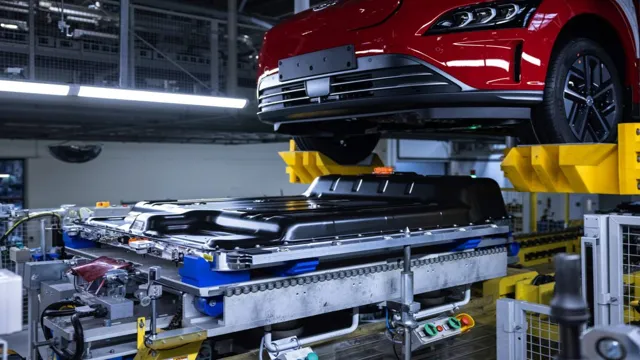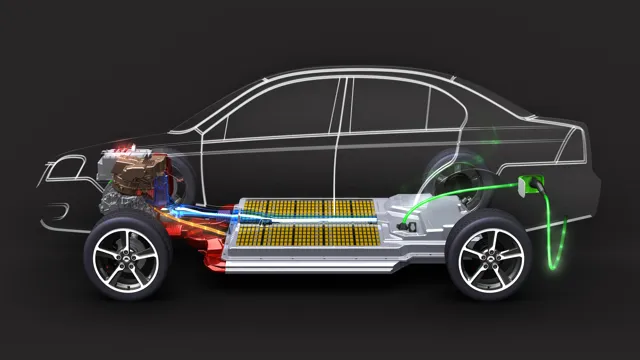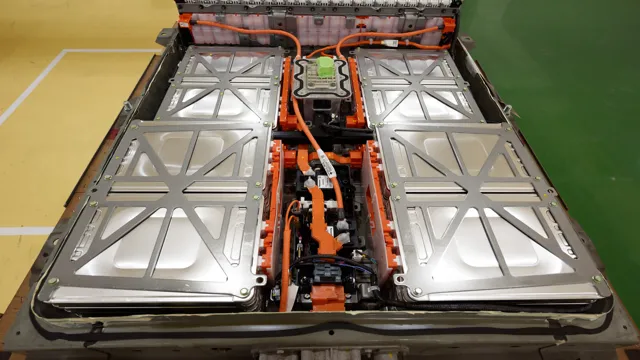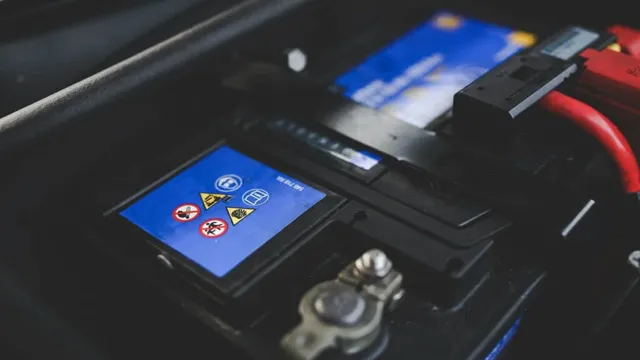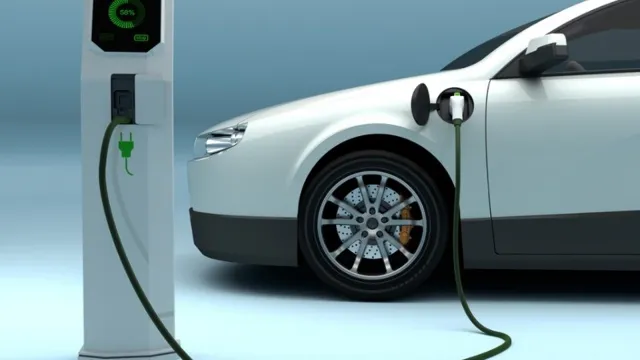Unveiling the Powerplay: A Comprehensive Guide to Battery Capacity in Electric Cars
Electric cars are becoming more and more popular as people look for ways to reduce their carbon footprint and save money on fuel costs. One important factor to consider when purchasing an electric car is the battery capacity. But what exactly is battery capacity, and why is it so important? Think of it like the fuel tank in a traditional gas-powered car – the larger the tank, the further you can travel before needing to refuel.
In the case of electric cars, battery capacity determines how far you can travel on a single charge. So, let’s take a closer look at electric car battery capacity and why it matters.
What is Battery Capacity?
When it comes to electric cars, battery capacity is an essential factor to consider. It is the amount of energy that the car’s battery can store and provide to the motor. Essentially, the larger the battery capacity, the longer the car’s range and the more power it can produce.
Battery capacity is typically measured in kilowatt-hours (kWh) and is an important factor in determining the overall performance of the electric car. Higher capacity batteries allow for faster acceleration, better overall efficiency, and longer driving distances. When considering purchasing an electric car, it’s essential to factor in the battery capacity to make sure you’re getting a model that can meet your driving needs.
Defining the Basics
When it comes to understanding how long our devices can function before needing a recharge, battery capacity is a key concept to understand. Simply put, battery capacity refers to the amount of energy that can be stored within a battery, measured in units called ampere-hours (Ah). This refers to the amount of time a battery can sustain its maximum rated voltage before needing to be recharged.
The higher the battery capacity, the longer the battery will last before it needs to be charged again. So if you are someone who uses their devices extensively, it’s important to opt for a battery with a high capacity. It’s worth noting, however, that the actual amount of time a battery can sustain its charge can depend on a variety of factors, including the type of device it’s used in, as well as usage patterns and conditions.
So while a higher battery capacity may sound great, it’s important to keep in mind that it’s not the only factor that determines overall battery life.
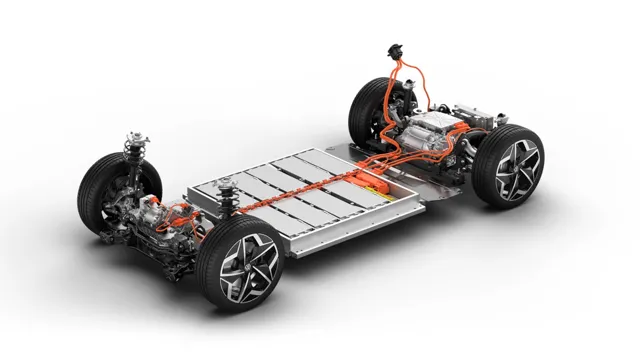
Factors Affecting Battery Capacity
Battery capacity plays a crucial role in an electric car’s overall performance and driving range. Several factors affect a battery’s capacity, including ambient temperature, driving style, and frequency of charging. Extreme temperatures, both hot and cold, can negatively impact battery performance, causing it to discharge more quickly.
Additionally, aggressive driving habits, such as accelerating and braking too fast, can strain the battery’s power output. The frequency of charging is also important, as constantly charging a battery to full capacity can shorten its overall lifespan. Therefore, it’s essential to strike a balance between charging frequency and battery health to ensure optimal performance.
By taking care of these factors, it’s possible to maintain a high battery capacity and extend the driving range of an electric car.
Temperature, Age, and More
Battery capacity can be influenced by several factors, including temperature, age, and usage patterns. High temperatures can cause batteries to lose capacity faster than expected, while very low temperatures can reduce their maximum output. For instance, lithium-ion batteries operate optimally at around 20°C, while very cold temperatures can reduce their overall capacity.
Similarly, as batteries age, they tend to lose capacity, with some going down by as much as 20% in a year. This loss of capacity is caused by the degradation of the internal components of the battery. Besides, the way a battery is used also affects its capacity, with manufacturers recommending that batteries should be charged and discharged regularly to maintain their health.
Overall, it is essential to understand the factors affecting battery capacity when choosing a battery for a particular application.
How Far Can an Electric Car Go on a Single Charge?
Battery capacity in an electric car plays a significant role in determining how far it can go on a single charge. Generally speaking, the larger the battery capacity, the further the car can travel without needing to recharge. For instance, electric cars with a battery capacity of around 60 kWh can travel up to 200 miles on a single charge.
Some models with larger batteries can even exceed that number, reaching as far as 300 miles. However, certain factors like driving style, terrain, and weather can impact the range of an electric car, causing it to go shorter distances than its advertised range. That said, ongoing developments in battery technology promise to improve the distance electric vehicles can travel while minimizing the time it takes to recharge them.
As we continue to move towards a more sustainable future, the battery capacity in electric cars will only continue to improve, enabling us to drive farther on each charge.
Comparing Electric Car Ranges
When it comes to electric cars, one of the biggest concerns for drivers is the range that the vehicle can go on a single charge. To compare ranges, we can look at a few of the top electric cars on the market. The Tesla Model S Long Range can travel up to 402 miles on a single charge, making it one of the longest ranges available.
The Audi e-tron has a range of 222 miles, while the Chevy Bolt can go up to 259 miles per charge. It’s important to note that these ranges can vary depending on driving conditions and the terrain you are traveling on. However, with the continual advancements in electric car technology, we can expect even longer ranges in the future.
As more and more drivers switch to electric cars, it’s becoming clear that range is no longer a major barrier to ownership. So not to worry, with the right electric car, you can travel as far as you need to with ease.
Battery Capacity vs Range
When it comes to electric cars, there is often confusion surrounding battery capacity and range. However, it’s important to understand that these two concepts go hand-in-hand. Battery capacity refers to the amount of energy that can be stored in an electric car’s battery, whereas range refers to how far the car can travel on a single charge.
The larger a car’s battery capacity, the more range it can achieve. For example, a car with a battery capacity of 60 kWh may have a range of around 250 miles, while a car with a battery capacity of 85 kWh may have a range of around 350 miles. Additionally, other factors such as driving habits, weather conditions, and terrain can impact an electric car’s range.
It’s important to consider both battery capacity and range when making a decision about which electric car to purchase, as a larger battery capacity may provide more convenience and a longer driving range.
Battery Capacity & Charging Time
Battery capacity is a vital aspect when it comes to electric cars. It refers to the energy stored in the car’s battery, measured in kWh. The bigger the battery capacity, the longer the car can go without needing to recharge.
Electric cars with larger battery capacities generally have a greater driving range compared to those with smaller battery capacities. However, the downside of having a larger battery is that it takes longer to charge. The charging time can vary depending on the type of charger used, ranging from a few hours to more than a day.
It’s worth noting that battery capacity and charging time are closely related. Electric car owners should consider both aspects when deciding which electric car model to purchase. A larger battery capacity might offer more range, but it also means a longer charging time and a higher cost.
It’s a trade-off that electric car buyers must keep in mind when making their decision.
The Relationship Explained
Battery capacity and charging time are directly related to each other. If a battery has a higher capacity, it will take more time to charge fully. The charging time is not only dependent on the battery capacity, but also on the type of charger being used.
Fast chargers can charge a battery quicker than regular chargers. This is because they deliver more power to the battery, allowing it to charge faster. On the other hand, charging a battery too fast can also have negative effects on its capacity and overall lifespan.
It is recommended to charge a battery at a slower rate with a compatible charger, as it will be beneficial for the battery. Additionally, it is also important to note that using a charging cable that is too long or of low quality can result in slower charging time and may even damage the battery. In conclusion, the relationship between battery capacity and charging time is crucial to keep in mind when charging any device.
When choosing a charger, it is important to ensure that it is compatible and that it delivers the right amount of power to the battery. Additionally, charging a battery at a slower rate is always better than charging it too fast, as it can help maintain its overall lifespan and capacity.
Fast Charging & Efficiency
When it comes to fast charging and efficiency, battery capacity and charging time play a crucial role. The battery capacity determines how much energy can be stored, while charging time refers to the amount of time it takes to charge the battery. The higher the battery capacity, the longer it can go without needing to be charged.
Similarly, the faster the charging time, the quicker the battery can be charged, which in turn increases efficiency. It’s essential to keep in mind that even with fast charging technology, the battery’s lifespan can still be affected if it’s overcharged or gets too hot. Therefore, it’s always best to use the manufacturer’s recommended chargers and charging methods to ensure the battery’s longevity.
Predicting Battery Capacity Evolution
Battery capacity in electric cars is a crucial factor to consider when it comes to the range and performance of the vehicle. Manufacturers are constantly looking for ways to improve battery technology so that electric cars can achieve longer ranges on a single charge. One approach is to use predictive modeling to estimate the capacity evolution of the battery over time.
This involves using mathematical algorithms to analyze data points like temperature, usage patterns, and charging cycles to forecast the future capacity of the battery. By doing so, manufacturers can better understand the behavior of the battery and optimize its performance over time. With better predictions of battery capacity, electric car drivers can plan their journeys more accurately and confidently, without worrying about running out of charge unexpectedly.
As improved battery capacity becomes more widespread, electric cars will become even more attractive to drivers looking to make the switch from traditional gas-powered vehicles.
New Solutions and Future Trends
Battery technology has rapidly evolved in recent years, and there’s a lot to look forward to in the future. Predicting the evolution of battery capacity is an essential aspect of planning for the future. One of the most significant developments in battery technology is the advancements in lithium-ion batteries.
Researchers have been working on the development of solid-state batteries that offer greater stability and longevity. The rise in electric vehicles has also put immense pressure on the demand for high-capacity batteries. With the growing need for cleaner energy sources and sustainable solutions, battery technology is set to play a crucial role.
Therefore, predicting the future of battery capacity is critically important to plan and develop energy storage systems that meet the ever-growing demand for energy. Despite the challenges, researchers and scientists are keen to overcome the limitations and come up with new solutions.
Conclusion
In the world of electric cars, battery capacity is king. It’s the one thing that determines how far you can go before needing a recharge. And just like a king needs a loyal court, your battery capacity needs a reliable infrastructure to keep it charged up and ready to go.
So, whether it’s a small city car or a high-performance sports car, remember that the battery is the heart and soul of your electric ride. Treat it well, and it will take you places you never thought possible!”
FAQs
What is the average battery capacity of an electric car?
The average battery capacity of an electric car is between 40 to 60 kWh.
How does the battery capacity affect the driving range of an electric car?
The battery capacity directly affects the driving range of an electric car. The higher the battery capacity, the longer the car can travel on a single charge.
What is the cost of upgrading the battery capacity in an electric car?
The cost of upgrading the battery capacity in an electric car varies depending on the manufacturer and model. It can range from a few thousand dollars to tens of thousands of dollars.
Can the battery capacity of an electric car be increased after purchase?
It is possible to increase the battery capacity of an electric car after purchase, but it can be expensive and may require modifications to the car’s electrical system. It’s best to check with the manufacturer to see if it’s possible and what the cost would be.
